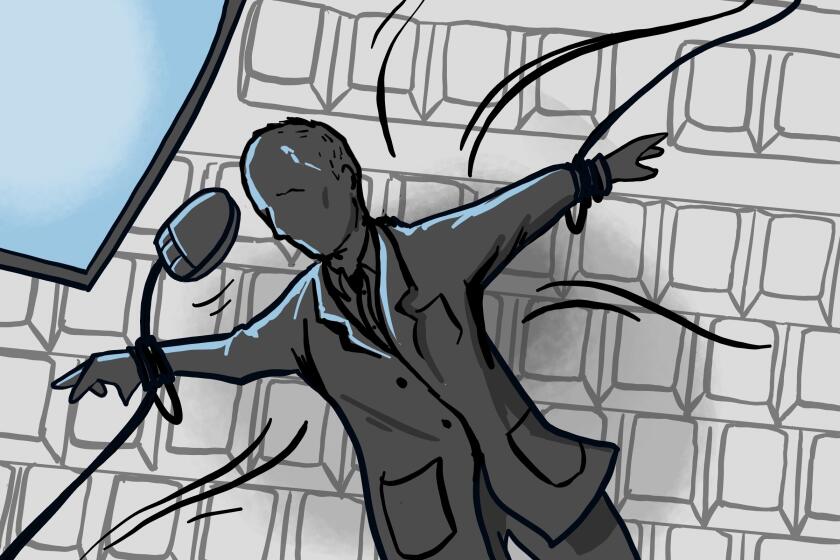Chips & Technologies Plans 20% Cut : Computers: The move casts doubt on the strategy of designing chips but having others make them.
Chips & Technologies, a San Jose-based company that pioneered the controversial strategy of designing computer chips and then sub-contracting the manufacturing, said Tuesday that it will post a substantial loss for its latest quarter and lay off 20% of its work force.
The retrenchment, including the sale of one product line, is the latest in a string of reversals for the once-highflying firm and its chief executive, Gordon Campbell. It could give new ammunition to those who argue that American firms cannot leave manufacturing to others if they are to remain competitive in world markets.
Chips’ specialty is designing chip sets for personal computers, which are then manufactured by Japanese, Taiwanese and American companies. The chip sets contain all the basic circuitry needed for a PC except for microprocessors. They make it easy for electronics manufacturers to produce industry-standard personal computers.
Chips enjoyed spectacular growth after it was founded in 1985, with sales reaching a peak of $293 million in 1990. But earnings and revenue have plummeted since then.
In its fiscal first quarter ended Sept. 30, 1991, the company lost $9.9 million on sales of $33 million. Chips said it expects to report a “substantially greater loss” for its second quarter ended Dec. 31. In the year-ago second quarter, the company earned $700,000 on sales of $59.5 million.
Chips has attributed the hard times to fierce price competition in the chip set business.
Some analysts said Chips’ problems are related to the PC slump as well as heightened competition in the chip set business. But they point out that some “fabless” chip companies--those that subcontract manufacturing--continue to prosper. Among them are Cirrus Logic and Xilinx.
“I don’t think this has implications for the fabless model,” says Robert Carter, a consultant with the Technology Research Group in Boston, which has promoted the notion that American companies can prosper by focusing only on design and marketing.
Still, the fact that Chips & Technologies doesn’t control its own production means that it has little flexibility in tough times. In addition, it cannot easily fight a price war because so much of its costs are the fixed amounts it must pay to have its products built.
“No matter how good you are, it’s very hard to control what you don’t produce,” says Michael Borrus, co-director of the Berkeley Roundtable on the International Economy and a vocal supporter of the notion that manufacturing is crucial.
Chips spokesman Gavin Bourne agreed that fabless companies must have unique products to prosper but denied that lack of production facilities was a cause of the company’s woes.
Chips’ future is now dependent on the success of its new “clones” of the popular 386 microprocessor, which will allow it to market an integrated package of circuitry for the PC.



